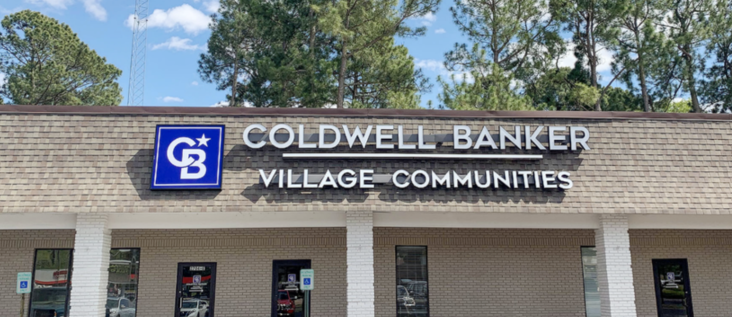Coldwell Banker has operated in Jonesboro for 50 years
by October 7, 2024 1:08 pm 321 views

Real estate developers Carroll Caldwell, Marvin Hinton, and Ray Pierson had an ambitious plan. The three men wanted to form a real estate company in Jonesboro. They decided to develop 350 lots in what is now Candlewood Estates, and started selling them for as little as $3,500 a piece.
Hinton fronted the $6,000 needed to start the company. Coldwell Banker Village Communities was born and 50 years later it had been involved in billions of dollars in transactions throughout Jonesboro and the rest of Northeast Arkansas, Caldwell told Talk Business & Politics.
“We wanted to work for ourselves,” he said.
The company still has three owners including Caldwell, but he has two new partners, Kevin Kercheval and Eric Clark. Kercheval has worked at Coldwell since 2002, and Clark joined in 2005. They bought out Hinton and Pierson in 2016.
Five people with experience as brokers work for the company and it has 82 licensed agents, Clark said. Hinton and Pierson remain on the sales team. Jonesboro’s steady population growth, low cost of living, and unique jobs base make it more recession resistant than a lot of cities in the region, Kercheval said. The city has morphed from a small town to a regional hub in the last several decades.
“We have a diverse job base. We’ve got agriculture, healthcare, food manufacturing, the college (Arkansas State University), retail and others,” said Kercheval who serves as the principal broker at the firm. “We aren’t dependent on one sector. Jonesboro is a great place to live and raise a family.”
One major development that will impact the quality-of-life metrics in the city will be the proposed $77 million Jonesboro Sportplex, Clark said. The 200,000-square-foot facility will have a competition diving and swimming pool, a warm up pool, along with basketball, volleyball and pickleball courts among other amenities.
“I think it will generate huge revenues for the city. Once it opens, I think it will be a boon to all the financial sectors in Jonesboro,” Clark said.
Caldwell’s path into the real estate market began in 1966 when he was a teenager working in construction in Cherokee Village making 75-cents per hour. Developer John Cooper created the retirement community, the first in the country, during this period and needed workers to build houses in the town that sits in Sharp and Fulton counties.
By 1971, Caldwell said he was promoted to real estate sales and not long after he took a sales job in Tennessee. That lasted about a year and that’s when he, Hinton and Pierson decided to open Coldwell Banker.
Through the years, the company evolved and now sells a mix of residential, commercial, and agriculture properties. As interest rates fluctuated, the strategies behind targeting customers had to change, Caldwell said.
For instance, in the early 1980s interest rates were higher than 20%. That meant people who already had money in the bank were making 15% interest on that money so the company had to go after that type of customer, he said.
During the company’s 50 years in operation, there’s only been one instance that the market turned from a “buyer’s market” to a “seller’s market” and it started as the COVID-19 pandemic unfolded in March of 2020. Kercheval said the seller’s market lasted until about mid-2022, when inflation and interest rates began to spike.
The Southern Hills development is the latest project connected to Coldwell Banker. It’s a 175-acre, mixed use development off Southwest Drive that will include 175 homes and 20-30 businesses, Caldwell said.
The infrastructure is already in place and the roads and sidewalks have been built. The development includes 2.5 miles of bike trails, he added. He estimates it will take three to four years to complete the development.
There are many good reasons to live and work in Jonesboro, but Kercheval said he would change one thing.
“If I could wave a magic wand, I’d get rid of the mosquitos,” he said with a laugh.
After being in business for 50 years, Caldwell said there is only one mystery that remains in the office. No one knows if Hinton was reimbursed the $6,000 that started the company.
“He asked me about that the other day,” Caldwell said with a smile on his face. ”I don’t know if we ever paid him back.”
